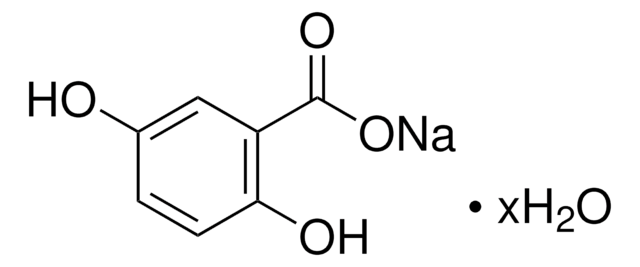85707
2,5-Dihydroxybenzoic acid
matrix substance for MALDI-MS, >99.0% (HPLC)
Synonym(s):
2,5-DHBA, DHB, Gentisic acid, Hydroquinonecarboxylic acid
About This Item
Recommended Products
grade
matrix substance for MALDI-MS
Quality Level
Assay
>99.0% (HPLC)
form
powder
analyte functional class(es)
polymers
analyte chemical class(es)
glycans, lipids, organic molecules, peptides, proteins
technique(s)
MALDI-MS: suitable
mp
200-207 °C
204-208 °C (lit.)
cation traces
Ba: ≤5 mg/kg
Ca: ≤5 mg/kg
Cd: ≤5 mg/kg
Co: ≤5 mg/kg
Cr: ≤5 mg/kg
Cu: ≤5 mg/kg
K: ≤5 mg/kg
Mg: ≤5 mg/kg
Mn: ≤5 mg/kg
Na: ≤5 mg/kg
Ni: ≤5 mg/kg
Pb: ≤5 mg/kg
Zn: ≤5 mg/kg
ε (extinction coefficient)
>2000 at 337 nm
SMILES string
OC(=O)c1cc(O)ccc1O
InChI
1S/C7H6O4/c8-4-1-2-6(9)5(3-4)7(10)11/h1-3,8-9H,(H,10,11)
InChI key
WXTMDXOMEHJXQO-UHFFFAOYSA-N
Looking for similar products? Visit Product Comparison Guide
Related Categories
Application
related product
Signal Word
Warning
Hazard Statements
Precautionary Statements
Hazard Classifications
Acute Tox. 4 Oral
Storage Class Code
11 - Combustible Solids
WGK
WGK 3
Personal Protective Equipment
Regulatory Listings
Regulatory Listings are mainly provided for chemical products. Only limited information can be provided here for non-chemical products. No entry means none of the components are listed. It is the user’s obligation to ensure the safe and legal use of the product.
JAN Code
85707-1G-F:
85707-VAR-F:
85707-250MG-F:
85707-10MG-F:
85707-BULK-F:
Certificates of Analysis (COA)
Search for Certificates of Analysis (COA) by entering the products Lot/Batch Number. Lot and Batch Numbers can be found on a product’s label following the words ‘Lot’ or ‘Batch’.
Already Own This Product?
Find documentation for the products that you have recently purchased in the Document Library.
Customers Also Viewed
Protocols
Explore mass spectrometry analysis of glycans for glycomic & glycoproteomic neutral & acidic glycan analysis. See a general mass spec glycan analysis procedure.
Our team of scientists has experience in all areas of research including Life Science, Material Science, Chemical Synthesis, Chromatography, Analytical and many others.
Contact Technical Service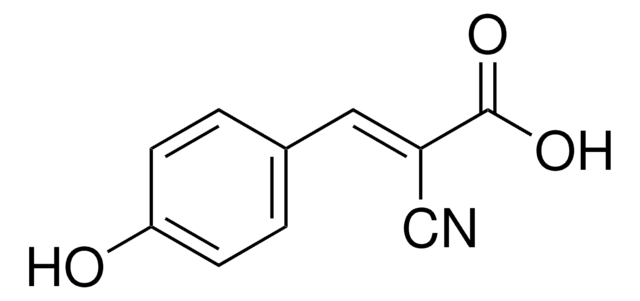
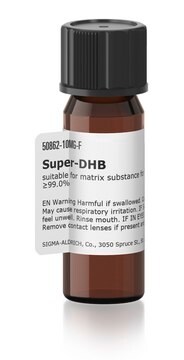
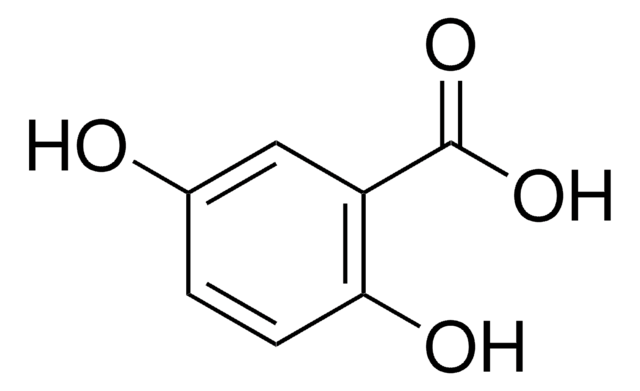

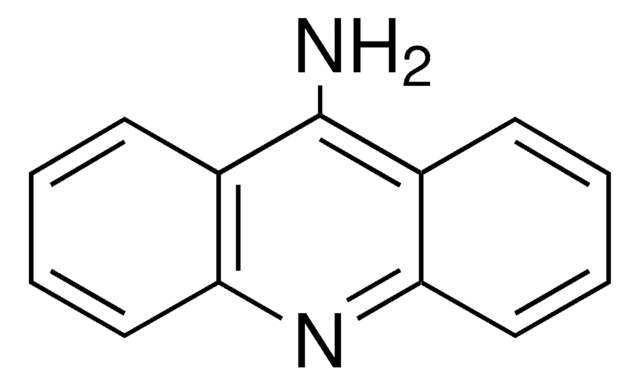

![trans-2-[3-(4-tert-Butylphenyl)-2-methyl-2-propenylidene]malononitrile matrix substance for MALDI-MS, ≥99.0% (HPLC)](/deepweb/assets/sigmaaldrich/product/structures/249/587/f8021369-f65a-413d-887d-3c8a4d2a248f/640/f8021369-f65a-413d-887d-3c8a4d2a248f.png)




